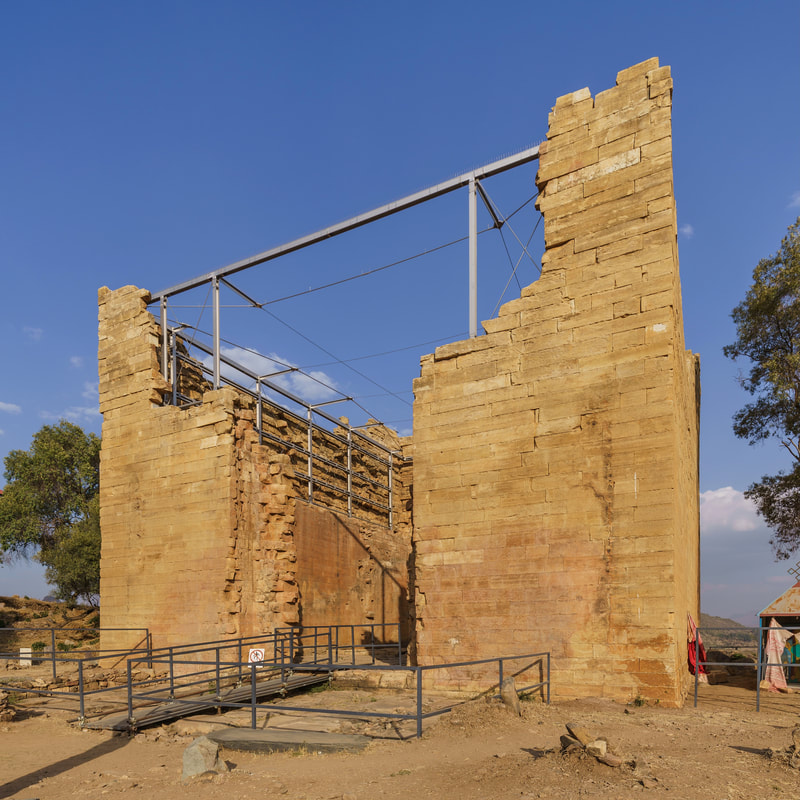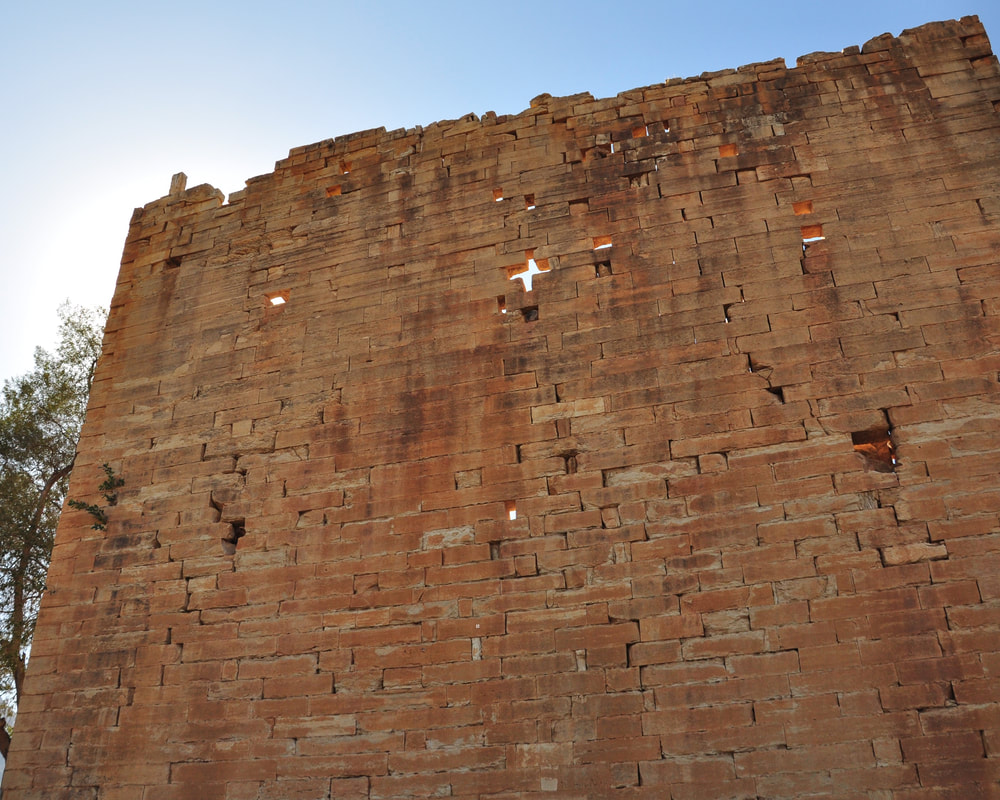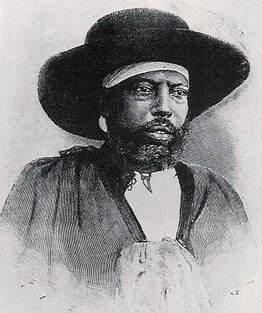|
In the northern Ethiopian region of Tigray, about 50 kilometers east of Axum, is the ancient archeological site of Yeha. Axum, a UNESCO World Heritage site, is known for its two thousand year old stelae fields and numerous important archeological sites. Although not nearly as well known has Axum, Yeha is much much older. Dating from the 7th century BCE, the Grand Temple of Yeha was 14 x 18 meters and stood 14 meters. Built of superbly cut stones of up to 3 meters long, the temple is thought to have been built to worship Almaqah, the moon god of the Saba’ Kingdom which was centered just across the Red Sea in southern Arabia.
One of the oldest standing structures in sub Saharan Africa, the temple measures 14 x 18 meters and 14 meters high. Built of superbly cut stones of up to 3 meters long, no mortar was required for its construction. Similar stone work is found in another Almaqah temple in Sirwah, Yemen and the ‘Awam temple in Ma’rib, Yemen. Other significant archeological finds within a few hundred meters of the Grand Temple are the remains of Grat Be’al Gebri, a palace dating from between the 8th and 6 centuries BCE, and a cemetery consisting of six rock cut shafts each serving as a tomb. Submitted for consideration as a UNESCO World Heritage site, Ethiopia’s Ministry of Culture and Tourism notes that Yeha “has also great potential for future archaeological researches to study the origin and development of stratified societies in the Northern Horn.” In 1896, nearly the entire African continent was under the control of European powers following their “Scramble for Africa.” Only Liberia, which had been settled by freed American slaves, and Ethiopia remained free from European rule. Following a dispute over the terms of a treaty (Treaty of Wuchale) between Italy and King Menelik II of Ethiopia, Italian troops were sent from their colony in Eritrea to force Ethiopia to accept Italian demands. On March 1st, after several small battles and skirmishes, the armies of both sides faced off near the village of Adwa in northern Ethiopia. Outmaneuvered and outmanned, the Italian forces and their allies were annihilated and Ethiopia would remain the sole African country free from foreign control.
Ethiopia’s victory stemmed the tide of seemingly inevitable European colonization and would inspire independence movements throughout the continent for decades. “Adwa Day” is a national holiday in Ethiopia and celebrated every year on 23 Yekatit of the Ethiopian Calendar. |
Abyssinia:
|
|
Telephone
+251 911623376
|
Email
|
Address
Haile Gebrselassie Street, Addis Ababa, Ethiopia
|
© 2024 Awaze Tours






 RSS Feed
RSS Feed
